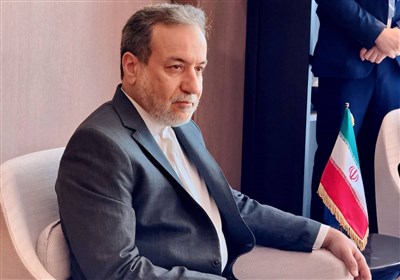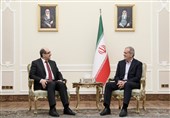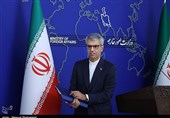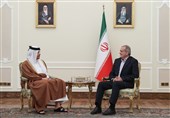Conflict between Egypt, Ethiopia over Renaissance Dam on Horizon: Scholar
TEHRAN (Tasnim) – A professor of international public law and member of the Egyptian Foreign Affairs Council in an interview with the Tasnim News Agency expressed his views on the crisis in relations between Egypt, Ethiopia and Sudan over Ethiopia’s Renaissance Dam.
Ayman Salama said the difference between Egypt and Sudan on one hand and Ethiopia on the other is major, and the dispute between Egypt, Sudan, and Ethiopia is not just limited to one controversial issue.
He said it is an existential issue for the two downstream countries, and there are numerous legal and technical problems that have made reaching a final agreement difficult.
According to the scholar, Ethiopia has strongly declined to sign any final agreement focusing on how to handle and run the Renaissance Dam, as well as the mutual fair use of the Blue Nile water after the dam's operation, since the start of political talks between Egypt, Sudan, and Ethiopia in April 2011.
“Ethiopia only accepts to sign or agree to a non-binding general guideline that it can withdraw from at any time in the future, as long as Egypt and Sudan are informed.”
Ethiopia only accepts to sign or commit to a mere non-mandatory general guideline that Ethiopia can dissolve from in the future, and as soon as the two countries, Egypt and Sudan, are notified, he said.
Salama said he does not believe the road to the Security Council is paved with roses, given the Security Council's unanimous decision in an emergency session on June 29, 2020 to refer the Renaissance Dam file or the dispute over it to the African Union.
The specialized observers are aware of the special partnership that exists between the United Nations and the African Union Organization in particular, he said.
Asked by Tasnim whether there is a conflict on the horizon that could re-ignite the war in the region, Salama said, “The Egyptian President has clarified that his recent statements do not constitute a threat to anyone and that Egypt remains adhered to the option of negotiation. However, some saw those comments as a beating of the war drums against Ethiopia and a threat to the military option, but Egyptians responded by launching the Egyptian army's challenge hashtag, through which they proclaimed their adherence to their right to the water war.
“However, I do not believe that either of the countries would set a historical precedent by bombing and destroying the Renaissance Dam, but I do believe that there will be a major military conflict that is not limited to the Sudanese-Ethiopian international border. However, if Ethiopia does not comply with legitimate Egyptian-Sudanese demands, the situation could spiral out of control, resulting in a major armed conflict between the two countries.”
As for Russia’s mediation, the professor said Russia has denied this role and considered itself to be only coordinating it.
“We should not forget that Russia has a central role as a permanent member of the Security Council and a country with significant capabilities and influence on the international stage,” he added.






